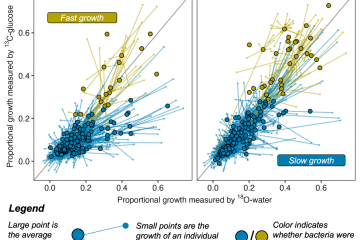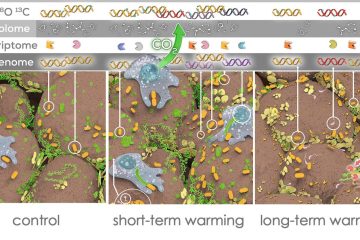RETRACTED ARTICLE: CO2 effects on plant nutrient concentration depend on plant functional group and available nitrogen: a meta-analysis
Elevated CO2 is expected to lower plant nutrient concentrations via carbohydrate dilution and increased nutrient use efficiency. Elevated CO2 consistently lowers plant foliar nitrogen, but there is no consensus on CO2 effects across the range of plant nutrients. We used meta-analysis to quantify elevated CO2 effects on leaf, stem, root, and seed concentrations of B, Ca, Cu, Fe, K, Mg, Mn, P, S, and Zn among four plant functional groups and two levels of N fertilization. CO2 effects on plant nutrient concentration depended on the nutrient, plant group, tissue, and N status. CO2 reduced B, Cu, Fe, and Mg, but increased Mn concentration in the leaves of N2 fixers. Elevated CO2 increased Cu, Fe, and Zn, but lowered Mn concentration in grass leaves. Tree leaf responses were strongly related to N status: CO2 significantly decreased Cu, Fe, Mg, and S at high N, but only Fe at low N. Elevated CO2 decreased Mg and Zn in crop leaves grown with high N, and Mn at low N. Nutrient concentrations in crop roots were not affected by CO2 enrichment, but CO2 decreased Ca, K, Mg and P in tree roots. Crop seeds had lower S under elevated CO2. We also tested the validity of a “dilution model.” CO2 reduced the concentration of plant nutrients 6.6% across nutrients and plant groups, but the reduction is less than expected (18.4%) from carbohydrate accumulation alone. We found that elevated CO2 impacts plant nutrient status differently among the nutrient elements, plant functional groups, and among plant tissues. Our synthesis suggests that differences between plant groups and plant organs, N status, and differences in nutrient chemistry in soils preclude a universal hypothesis strictly related to carbohydrate dilution regarding plant nutrient response to elevated CO2.


